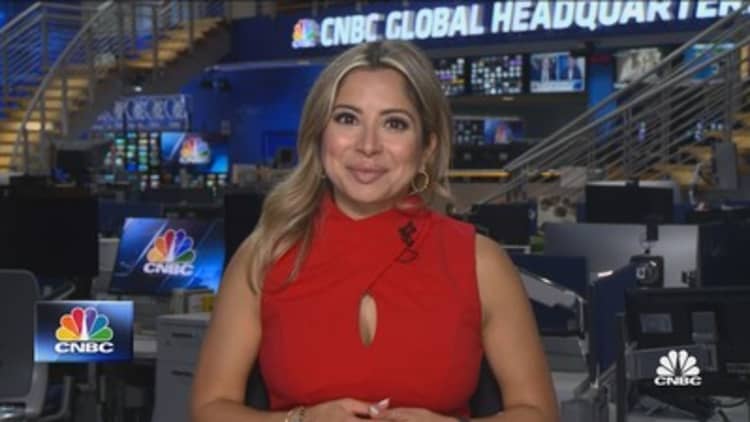
Here are the most important news items that investors need to start their trading day:
1. New week, new data
Stock futures were slightly higher on Monday to kick off the last week of August. Dow Jones Industrial Average futures were up 83 points, or about 0.2%, while S&P 500 futures and Nasdaq-100 futures rose 0.2% and 0.3%, respectively. Stocks are coming off a winning session, as the major indexes rose Friday following Fed Chair Jerome Powell's speech in Jackson Hole, Wyoming. In his remarks, Powell said the central bank had seen signs of progress, but warned that inflation remains "too high" and that the Fed is "prepared to raise rates further if appropriate." This week, investors will be looking ahead to more economic data that could give an indication of the Fed's next move, with the monthly jobs report set to be released on Friday. Follow live market updates.
2. Earnings ahead
Earnings season is winding down, with a few stragglers left. Most companies have already released earnings for the quarter, but investors are still waiting on reports from the last wave of major retailers and a few tech companies. Salesforce, Broadcom, Best Buy and Lululemon headline the week. Here are the notable earnings coming up:
Tuesday: Best Buy, NIO (before the bell); HP (after the bell)
Wednesday: Brown-Forman (before the bell); Salesforce, Crowdstrike, Okta (after the bell)
Thursday: Dollar General (before the bell); Broadcom, Lululemon Athletica (after the bell)
3. Going public
Tech investors rejoice: The IPO freeze is over. The last major initial public offering for a venture-backed tech company came 20 months ago, leaving many to wonder which buzzy name would be the first to leap into the public markets. An answer finally came Friday, when grocery delivery startup Instacart and data and marketing automation company Klaviyo filed for stock market debuts. Earlier last week, Arm, the chip designer owned by Japan's SoftBank, filed for a Nasdaq listing. CNBC's Ari Levy reports that the three IPOs will be a test to see how investors feel. If they're successful launches, they could inspire more companies to go public.
4. Not so grand
Shares of China Evergrande Group, the world's most indebted property developer, plunged Monday, as it traded for the first time since March 21, 2022. The stock fell as much as 87% on its open. The beleaguered company filed for Chapter 15 bankruptcy in the United States in July, which will protect its U.S. assets from creditors while it works out a restructuring deal. That move came after Evergrande defaulted in 2021 and announced an offshore debt restructuring program in March. The developer has struggled to finish projects and repay suppliers and lenders.
5. The meme goes on
Meme stocks are gonna meme. In this case, it's popular meme stock Bed Bath & Beyond which saw its shares trade at large volumes even as the stock is likely weeks away from being declared worthless. The home goods retailer filed for Chapter 11 bankruptcy in late April and has been closing its brick-and-mortar stores. Its intellectual property was acquired at auction by Overstock, but the company warned in an SEC filing that trading its stock during the ongoing Chapter 11 cases was "highly speculative and poses substantial risks." In other words, stockholders aren't likely to see much, if any, gain. Without recovery, the company's market cap of $152.25 million essentially boils down to nothing for common shareholders. Several tiers of bondholders come first in the reimbursement food chain and shareholders do not get a vote on the plan.
— CNBC's Samantha Subin, Jeff Cox, Robert Hum, Ari Levy, Lim Hui Jie and Elliot Smith contributed to this report.
— Follow broader market action like a pro on CNBC Pro.





